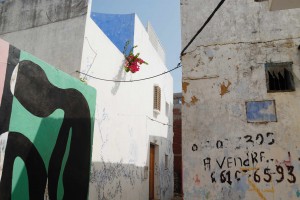One of the key people to follow for Middle Eastern news — particularly analysis of the media and cultural scenes — is Andrew Hammond, who works at Reuters. He also has a blog where he posts the occasional non-Reuters article, the latest of which is about the arts scene after the uprisings. After first discussing worries in arts circles about the rise of Islamists, Hammond writes:
However, I think a more pertinent issue to raise here is the general state of the al-wasat al-fanni, or the arts scene, as it is often referred to in Arabic, since this is what exercises the minds of these new players on the political scene. It is utterly corrupt. The arts were and are an intimate part of the rotten structure of Arab state politics. To rise to the top in Mubarak’s entertainment world you had to play the game with the regime, because the state placed itself at the centre of artistic production, giving the more sordid aspects of fame familiar anywhere a more sinister turn. Numerous actresses have fallen out of favour because they didn’t want to submit to the sleazy rules of fame laid down by Media Production City and its former boss Mamdouh al-Leithy. Wealthy ministers or princes from Gulf countries enter into the equation, funding films or promoting actresses who might receive a phone call from an intermediary offering them a three-day trip to visit the prince, ferried on a private jet without need for stamping passport, and topped off with a large amount of dollars placed in bank account (something Lebanese presenter Tony Khalifa once fished at in questions to two well-known actresses on his show). Egyptian independent and opposition newspapers often hint at these deals, with articles noting the sudden wealth of so-and-s0 who now has a limousine, or who just returned from a major shopping trip to Paris or the Gulf. The transnational corruption of Arab arts was hinted at by the murder in 2008 of a not-so-talented Lebanese singer taken out in Dubai by a hitman sent by her former tycoon lover in Egypt.
Read the whole thing, and while you're at it you might want to get yourself a copy of Andrew's book, Popular Culture in the Arab World.






